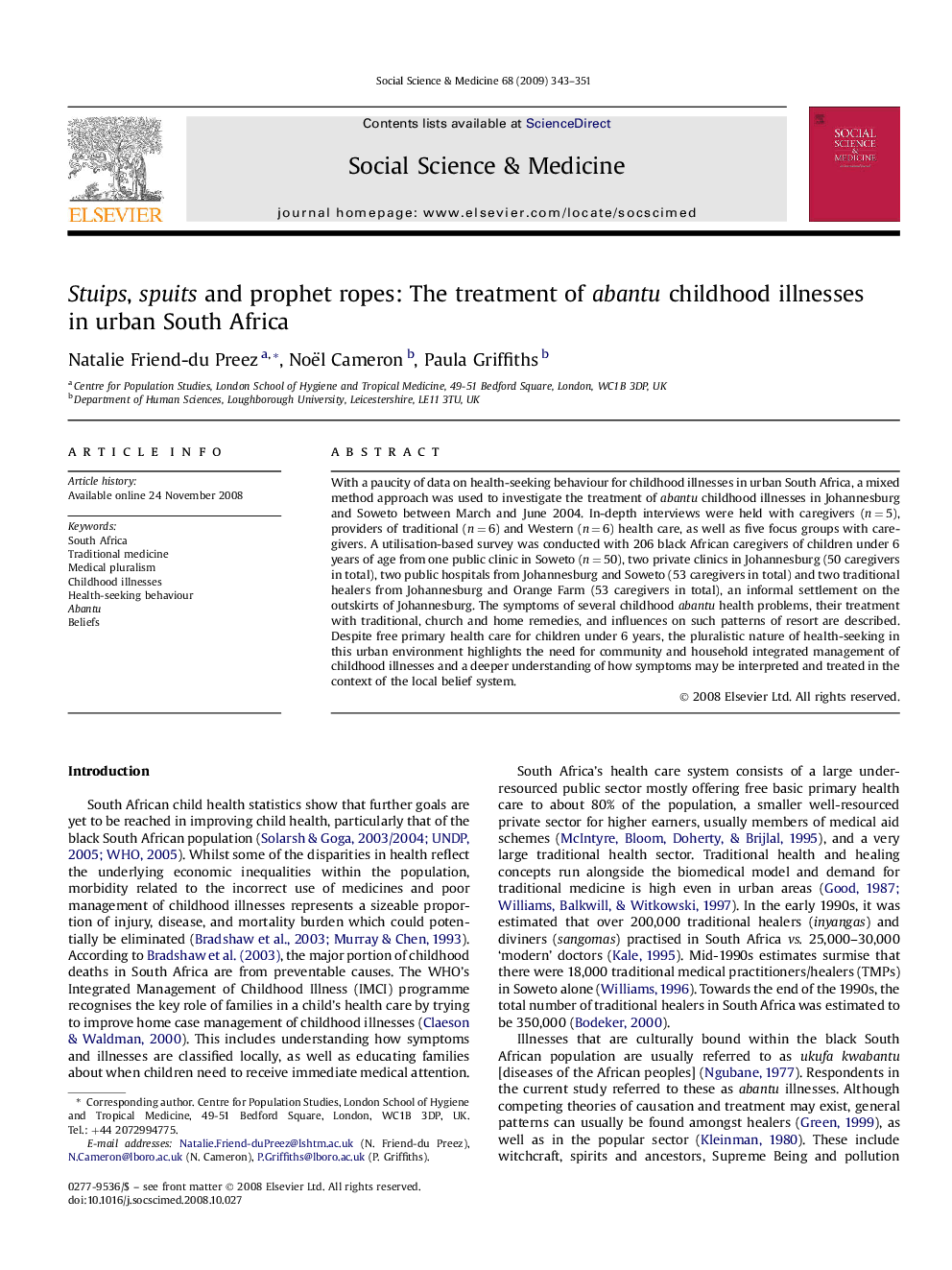| Article ID | Journal | Published Year | Pages | File Type |
|---|---|---|---|---|
| 953322 | Social Science & Medicine | 2009 | 9 Pages |
With a paucity of data on health-seeking behaviour for childhood illnesses in urban South Africa, a mixed method approach was used to investigate the treatment of abantu childhood illnesses in Johannesburg and Soweto between March and June 2004. In-depth interviews were held with caregivers (n = 5), providers of traditional (n = 6) and Western (n = 6) health care, as well as five focus groups with caregivers. A utilisation-based survey was conducted with 206 black African caregivers of children under 6 years of age from one public clinic in Soweto (n = 50), two private clinics in Johannesburg (50 caregivers in total), two public hospitals from Johannesburg and Soweto (53 caregivers in total) and two traditional healers from Johannesburg and Orange Farm (53 caregivers in total), an informal settlement on the outskirts of Johannesburg. The symptoms of several childhood abantu health problems, their treatment with traditional, church and home remedies, and influences on such patterns of resort are described. Despite free primary health care for children under 6 years, the pluralistic nature of health-seeking in this urban environment highlights the need for community and household integrated management of childhood illnesses and a deeper understanding of how symptoms may be interpreted and treated in the context of the local belief system.
